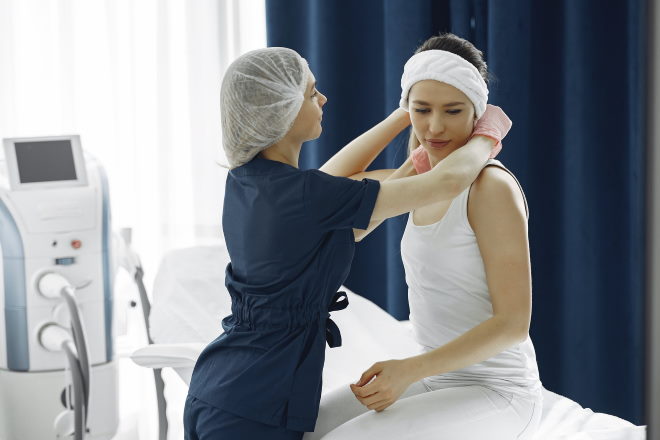Tummy Tuck Surgery Insights for Patients in France
Tummy tuck surgery has gained attention among individuals in France seeking to enhance their body contours. This procedure involves the removal of excess skin and fat from the abdominal area, resulting in a slimmer appearance. Individuals often express satisfaction with the transformation, noting improvements in both aesthetics and confidence. The time required for the surgery may vary, but patients frequently report positive outcomes that contribute to their overall well-being.

Tummy tuck surgery, or abdominoplasty, represents one of the most transformative body contouring procedures available in France’s cosmetic surgery landscape. This surgical intervention specifically addresses concerns related to the abdominal area that often cannot be resolved through diet and exercise alone. For many patients in France, the procedure offers not only aesthetic improvements but also functional benefits, particularly for those experiencing muscle separation (diastasis recti) following pregnancy or significant weight fluctuations.
Understanding Tummy Tuck Surgery and Its Benefits
A tummy tuck is a major surgical procedure that removes excess skin and fat from the abdomen while restoring weakened or separated muscles. In France, the procedure is performed by qualified plastic surgeons who typically have completed specialized training in aesthetic surgery. The primary benefits extend beyond mere cosmetic enhancement—many patients experience improved posture, reduced back pain, and better abdominal muscle function following the procedure.
The surgery addresses several common concerns: post-pregnancy abdominal laxity, excess skin following significant weight loss, weakened abdominal wall muscles, and stubborn fat deposits resistant to traditional weight management methods. For patients with hernias or urinary incontinence, a tummy tuck can sometimes be performed alongside corrective procedures, offering comprehensive abdominal restoration.
French surgical standards emphasize personalized approaches, with surgeons offering various techniques including full abdominoplasty, mini-abdominoplasty, and extended abdominoplasty depending on the patient’s specific anatomy and goals. This tailored approach helps ensure optimal outcomes while minimizing unnecessary intervention.
Procedure Duration and Recovery Expectations in France
In France, tummy tuck procedures typically last between two and four hours, depending on the complexity and whether additional procedures are performed simultaneously. Most French surgical facilities conduct these operations as inpatient procedures, with patients staying one to three nights for monitoring before returning home.
The recovery timeline follows a relatively predictable pattern in the French healthcare context. Patients generally require one to two weeks away from work and daily responsibilities, with restricted physical activity for four to six weeks. French surgeons typically recommend specialized compression garments for approximately six weeks to support healing tissues and minimize swelling.
French medical protocols emphasize progressive recovery, with patients gradually increasing activity levels under medical supervision. Complete recovery, including the final settling of tissues and scars, typically takes six months to a year—a timeline French surgeons carefully communicate to manage patient expectations. Throughout this period, regular follow-up appointments with the surgical team ensure proper healing and address any concerns.
Patient Experiences and Reported Outcomes After Surgery
Patient satisfaction rates for tummy tuck procedures in France remain consistently high, with most reporting significant improvements in body image and confidence. According to patient feedback, the most appreciated outcomes include the flatter abdominal profile, improved waist definition, and the removal of stretch marks in the excised skin areas.
French patients frequently report functional improvements alongside aesthetic ones. Many note enhanced core strength, better posture, and reduced back pain following the restoration of abdominal wall integrity. For women who experienced diastasis recti after pregnancy, the repair of separated muscles often resolves related discomfort and functional limitations.
The psychological impact of the procedure proves significant for many French patients. Studies conducted at French medical centers indicate improvements in quality of life, body image perception, and self-confidence following successful abdominoplasty. However, realistic expectations remain crucial—French surgeons emphasize that while the procedure creates substantial improvements, patients should anticipate some scarring and understand that maintaining results requires ongoing lifestyle management.
Selecting a Qualified Surgeon in France
France boasts a robust regulatory framework for plastic surgery, with strict qualification requirements for practitioners. Patients considering a tummy tuck should seek surgeons who are members of the French Society of Plastic, Reconstructive and Aesthetic Surgery (SOFCPRE) and verify their credentials through the National Council of the Order of Physicians.
When consulting with potential surgeons, French patients are encouraged to review before-and-after portfolios specific to abdominoplasty procedures and inquire about complication rates and management protocols. Most reputable French surgeons provide comprehensive consultations that include digital imaging to simulate potential outcomes and detailed discussions of risks and realistic expectations.
The French healthcare system offers both public and private options for cosmetic procedures. While tummy tuck surgery is generally considered cosmetic and therefore not covered by public health insurance, certain cases involving significant functional impairment or reconstruction following medical conditions may qualify for partial coverage through complementary insurance plans.
Tummy Tuck Costs and Provider Comparisons in France
Tummy tuck surgery costs in France vary significantly based on geographical location, surgeon expertise, facility type, and the complexity of the individual case. In major metropolitan areas like Paris, prices typically range from €5,000 to €9,000, while regional centers may offer rates between €4,000 and €7,000.
| Provider Type | Average Cost Range | What’s Typically Included |
|---|---|---|
| Private Clinics in Paris | €6,500 - €9,000 | Surgery, anesthesia, 1-2 night stay, basic follow-up |
| Private Clinics in Regional Cities | €4,500 - €7,000 | Surgery, anesthesia, overnight stay, basic follow-up |
| University Hospital Centers | €4,000 - €6,000 | Surgery, anesthesia, overnight stay, standard follow-up |
| Specialized Aesthetic Centers | €5,500 - €8,500 | Surgery, anesthesia, overnight stay, extended follow-up package |
Prices, rates, or cost estimates mentioned in this article are based on the latest available information but may change over time. Independent research is advised before making financial decisions.
Many French clinics offer financing options to help patients manage these significant costs. Additionally, patients should consider the full financial picture beyond the surgical fee—including pre-operative consultations, post-operative garments, medications, and potential time away from work during recovery.
Preparing for Tummy Tuck Surgery in France
French surgical protocols emphasize thorough preparation to optimize outcomes. Patients are typically advised to maintain stable weight for at least six months before surgery, as significant weight fluctuations can compromise results. Smokers must cease tobacco use at least four weeks before and after surgery, as smoking significantly impairs healing and increases complication risks.
Pre-operative assessments in France are comprehensive, including blood tests, cardiovascular evaluation, and sometimes nutritional assessment. Surgeons typically provide detailed pre-operative instructions covering medications to avoid, dietary guidelines, and practical preparations for the recovery period. Many French surgical practices also recommend specific nutritional supplements to support optimal healing.
This article is for informational purposes only and should not be considered medical advice. Please consult a qualified healthcare professional for personalized guidance and treatment.




